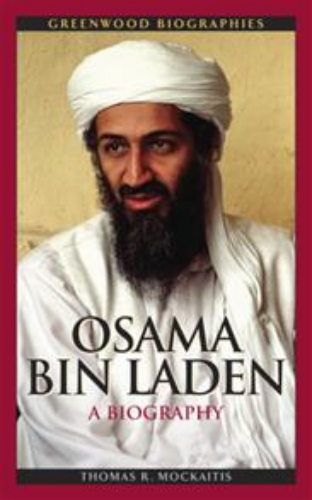May 03, 2011
DePaul Faculty Members Available to Comment on Impact of bin Laden Killing
DePaul Faculty Members Available to Comment on Impact of bin Laden Killing
Alberto Coll, professor of law, 312-362-5663 or acoll@depaul.edu. Coll is an authority on international criminal law and was an advisor to former president George W. Bush on counterterrorism efforts.
Scott Hibbard, assistant professor of political science, 773-325-7542 or shibbar1@depaul.edu. Hibbard’s research focuses on religion and politics, with a specialization in Islamic politics in the
Barry Kellman, professor of law, 312-362-5258 or bkellman@depaul.edu. An expert in terrorism involving biological and chemical weapons. “Al Qaeda members have written and talked about their desire to use weapons of mass destruction, but most
Khaled Keshk, associate professor of religious studies, 773-325-4466 or kkeshk@depaul.edu. Expertise includes Muslim communities in
Khalil Marrar, assistant professor of political science, 773-325-8682 or kmarrar@depaul.edu, teaches
Aminah McCloud, professor of Islamic world studies, 773-325-1290 or amccloud@depaul.edu. “In some ways, this is an auspicious time given the ‘Arab Spring.’ The killing of bin Laden could further open the door for those seeking greater freedom. But it is unlikely to be the end of attacks against perceived enemies by extremist groups. It also raises a number of questions, including will the
Michael McIntyre, associate professor of international studies, 773-325-7877 or mmcintyr@depaul.edu. “The event would be to start with the implications of the discovery of Bin Laden less than half a mile from the
Tom Mockaitis, professor of history and author of a 2010 book on bin Laden. 773-325-7471 or tmockait@depaul.edu. “The killing of bin Laden was a dramatic intelligence and Special Operations success, but it will not change the threat posed by al-Qaeda and its network of affiliates. Although bin Laden was the spokesman and icon of the movement, he had long since ceased to be its effective leader. The
Bruce Newman, professor of marketing and a leading national expert on political marketing, 312-362-5186 or bnewman@depaul.edu. “The campaign for the 2012
Scott Paeth, associate professor of religious studies, 773-325-4447. Paeth is an ethicist who specializes in questions of applied ethics, including the ethics of war and peace, and can address the ethics of targeted assassinations.

DePaul Prof. Tom Mockaitis is the author of Osama bin Laden: A Biography
